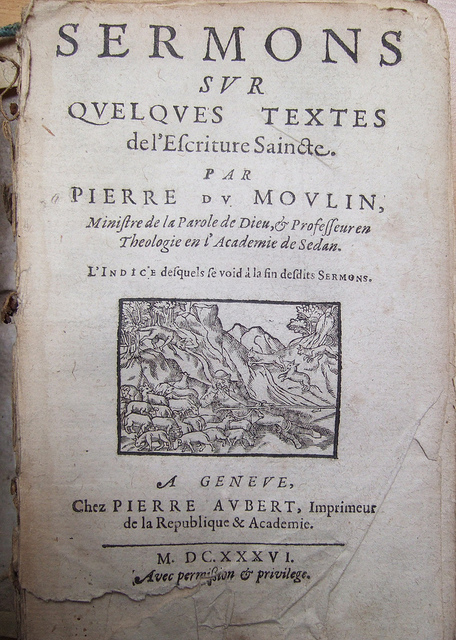Ditch the Sermon; Instead Ask Questions
By Sarah Callender | May 10, 2017 |

This past weekend, I was lucky enough to find myself sitting in front of a Van Gogh at the Metropolitan Museum of Art. While sitting, I was also talking on the phone to a certain teenager whom I happened to birth in 2003. This teenager was 3,000 miles away from me and the Van Gogh, and he had called to ask me whether he should retake the Bio test on which he had earned a 10/25. He wasn’t sure if he should.
“I’m not sure if I should,” he said.
I looked at Van Gogh’s self portrait. He didn’t look well. Probably teenagers had impacted his mental health. I rubbed my ear and gave my inner Helicopter Mother a mental shove to make room for my inner Mother of Perpetual Pseudo-Patience.
The latter gently said, Do NOT tell him what to do. If you are always telling him what to, he will never learn how and what to do without you telling him what and how to do it. And then you’ll wake up one day and you will realize he is forty-eight years old and still lives with you and still expects that you will make him hash browns and a banana smoothie for breakfast.
“OK,” I said into the phone, “what are the pros and cons of retaking the test?”
Helicopter Mother rolled her eyes and snorted.
“I mean, it’s nice,” I continued, “that Ms. C. is letting you do a retake. Tell me what you’re thinking about your options.”
“I’m not sure what I’m thinking,” he said.
I tugged on my ear some more. I needed a Monet or a Manet or something more soothing than Vincent Van Gogh’s self portrait staring at me. How about one of those Degas dancers? A flock of those Degas ballet ladies would help neutralize the Wild West boy brain on the end of the phone line. Maybe.
“Well,” I said, “what would it look like, hypothetically, if you took the make-up test? Would you need to set that up with Ms. C. or could you take it at any time?”
“I dunno,” he said. “If I do it, I guess I’d go to the extra study session after school on Tuesday, then maybe do the retake on Thursday or Friday.”
A pause. He was waiting for me to say something.
That’s right, the Patient Mother whispered. Act casual. Play it cool. Ask questions, don’t lecture.
“Huh, well, that sounds like a good plan.” My voice was melted butter, only more patient. “Are there any downsides to retaking the test? Other than the hassle of studying?”
I heard him thinking. “Probably not,” he said. Then he sighed. “I think I’ll do it. I’ll set it up with Ms. C. on Monday.”
As if the whole thing was 100% his own brilliant idea.
After hanging up, I gave dear Vincent Van Gogh’s portrait a virtual fist bump. He just looked at me, unimpressed.

Self-Portrait with a Straw Hat
My knowledge of art is pathetic, but I do sense when a painting or a sculpture is trying to tell me how to think. I don’t like—any more than a teenager likes—a lecture. I like a painting that’s a gift, one that presents itself to me and seems to ask only, Hey. What do you think?
I think that’s why I like Van Gogh. He’s not a know-it-all or a bossy-pants. He presents his work and possibly a few (optional) questions, then he offers me some breathing room.

The Zouave
In this work for example, I think Van Gogh is asking me, What did this big-bellied guy have for lunch? To which I answer, The Appleby’s all-you-can-eat buffet.
And in this one, Van Gogh lets me wonder: If she’s so bored with the book she’s reading, what’s stopping her from closing that one and heading to her local library?

L’Arlésienne: Madame Joseph-Michel Ginoux
As writers, can’t we also use our stories as a vehicle not to preach but to ask questions? Or even better, to inspire our readers to ask questions of their own? Shouldn’t our job not be forcing a theme or a message but presenting the reader with the opportunity to mull over the questions a good story inevitably poses? Unless a story is a parable or a fable or a satirical piece, isn’t it best for a writer to ask questions rather than force an idea down a reader’s gullet?
And just as we shouldn’t try to control the reader by writing sermons in the guise of stories, shouldn’t we also understand that when we hang our stories on the wall of the Metropolitan Museum of Goodreads, we must be ready and willing to receive any response from any reader? I am certain that Van Gogh didn’t know he’d be handing me a painting about which I would ask, “What did this guy eat for lunch?”
But that’s what dear Vincent got. Sorry, mi amigo.
Can we accept that our job as writers is to write the best story we can, then hold it in our open hands, extending it to friends and strangers to do with it what they will? We can no more tell our readers how to receive a story than we can tell readers what to think about a story’s message. I mean, right?
Of course we writers can be noodling over a theme or our own personal meaning of whatever story we are writing. When I give someone a gift, I give something that I think and hope she might like. I don’t give a gift for the sake of giving a gift. But once the recipient unwraps it, I have no say about how she receives it or what she does with it.
In the case of my son, he called me with a story of his own, one in which he was exploring his own questions, his own conflict. His read-between-the-lines message? I need to make a decision. I need you to help me process my options. But I do not need you to smack me over the head with your message.
Or maybe that’s just my maternal interpretation. Maybe I am reading too much into his phone call. Maybe I have misinterpreted it though if I have, I guess that’s my prerogative. My son can’t control how I interpret a long distance phone call taken just a few yards from a wall of real Van Goghs.
And what about that self portrait? There VVG is, with that yellow hat and those vacant eyes, and I feel like I can feel the depth of his despair. Was Van Gogh’s message in his self portrait, perhaps Help me? I think so, but that’s just my interpretation. That’s just what I do with the freely-given gift of his art.
Your turn. Do you find yourself dabbling with a message or having an agenda as you write? What specific questions are you asking through your work in progress? Are you bothered by books with a heavy-handed message, or are there some you have enjoyed, in spite of an overt message?
Thanks, friends, for sharing.
Sermon photo compliments of Flickr’s Medpro.









I am working on a story with a definite point. I want to change readers’ minds. I want them to see themselves, and angels, in a different way.
However, preaching will not accomplish that. Only persuasion will make that happen, and there is no stronger a lever than an enthralling story.
Don’t mistake me. I have an agenda. I intend to change you, but when the story is done and if I have done my job, you will believe that you have changed yourself.
If your post today has changed me, it has actually changed me more as a parent. Thanks for that.
Hi Benjamin,
Yes, the angels! It’s such an amazing thing to be changed by a book. And even cooler to know we read with a posture that shows we are willing to be changed … I think most of us here (if not all of us) are willing to let stories change us. That’s the power of a good story.
Being a parent is hard; isn’t it? Here’s a solidarity fist bump for you!
Thanks for your comment.
:)
Thanks for the post Sarah.
Spring seems to melt attention spans in kids. I just had a conversation with my daughter about a making up a test she missed while doing the school play.
I’m thinking of writing some fan fiction to get my point across instead of lecturing her.
Harry Potter and the Missing Spells Assignments
Harry Potter and the Warning In Potions Class
Harry Potter and the Plague of Homework-Eating Bugs
Ha! I laughed out loud at your comment. Thank you for the empathy. Please let me know when you get those books published. I will buy fifty of all of them.
There could also be one called, “The Mysterious Fragrance of 6th Period PE Class.” But your titles are better.
I’m so glad you took the time to share, James. Thank you!
:)
Preaching is deadly unless you have an already-committed captive audience (think Pilgrim’s Progress). Modern readers can stop reading at any point.
An author can’t avoid having a message – the author’s opinions about life infuse the story: this is right, that is not, the following has consequences.
And that’s why we read, to hear the author’s arguments about a particular course of action, entertainingly presented as a story, and to see how that particular life would play out. I reread Travis McGee novels with pleasure because John D. MacDonald makes such sense.
Stories distract us from the preaching, but it’s there. And the better the story, the easier it is for the message to get heard.
Or so I hope.
Oh my gosh, yes! Pilgrim’s Progress. I have a relative who gave my kids, age eight and ten at the time, a copy of that. Sigh. Not the best gift ever … because you are right. It’s not the best audience for such a thing.
And to your point about a captive audience with an already-similar mindset … so much of that goes on in social media. Don’t you think that fact must contribute to the political “bubbles” discovered after November’s elections? It’s easy to preach and agree when the speaker and the audience stand in solidarity. When we preach from our bubble pulpits, we forget there are other opinions. But that’s another topic …
Thank you, Alicia! Happy reading and writing.
Part of the benefit of writing stories, for me, the author, is to stretch myself to consider the questions I know I don’t have a solid handle on. I know they say reading fiction improves empathy, but to me writing fiction does so even more. Because I have to justify or support my characters’ actions with motivations born from their own personal histories, I write myself into seeing the world from their point of view. And that helps me become a much more patient, forgiving person who can give others the benefit of the doubt more than I could before I started writing.
When a story asks me the hard questions at the same time it asks readers, it’s hard to be preachy. The more I delve into these characters with a generous spirit rather than a punitive one, the more nearly every action and attitude seems reasonable *from that person’s point of view.* That makes it awfully difficult to condemn and dismiss, but it makes it much easier to understand and empathize. And that’s one of the greatest gifts my writing of the past five years has given me.
I love this comment, Erin. Thanks for reminding me what a gift the writing life is.
Erin,
I LOVE this comment. Every words is true. I often think about this too … do writers become writers because we are more empathetic human beings or do we become more empathetic as we write? Both, I suspect. I am convinced that we screw up the world the moment we forget how to be empathetic.
I’m so glad you shared today.
Fist bump!
Thanks, Sarah, for reminding me not to be preachy. ‘Cause among the many things I’m feeling these days, one of them is most definitely preachy.
As always, I love reading your essays. You’re a gift to WU.
You? Preachy? If that’s the case, then please text me the time and location of your next sermon. I’ll be sitting there in the first pew, right in the center.
Thanks, Vaughn. I hope spring has hit your part of the country!
Every single one of your posts makes me laugh and makes me think. This is no different, and I love the art aspect, too.
Barbara! I actually thought about you while I was at the Met. There was a semi-uninteresting collection, and I longer for the color of an O’Neal original. I’m serious!
Thanks for your generous comment.
xo!
Sarah, what Barbara said, plus cowbell.
I was just thinking of Christopher “can we getta little more cowbell” Walken today!
Thank you, oh California lamb chop!
Great post, Sarah, with some wonderful licks of humour.
I expect when a novel’s message approaches our own view of something, we don’t mind a story when it’s being preachy. After all, every one of us likes to have their views reaffirmed. It’s when a novel’s message runs counter to our views of how the world works that we feel we’re being preached at.
It would be interesting to know the percentage of people who are genuinely capable of considering a viewpoint opposite their own, without getting emotional or tuning out. I expect it’s quite small. If this is true, it makes sense why authors and publishers have to know their market.
On the other hand, I’ve always appreciated Don Maass’s perspective that it’s fiction’s job to lead. To ask the big questions. To provoke thought and consideration from readers about an issue that they maybe haven’t considered before. And if an author is going to do that successfully (as you point out so well in this couch), it helps to couch the novel’s message in terms of questions. It may not feel as effective to an author, as though the message is being watered down. But I would guess it’s far more effective.
Thanks again for the great post.
Yes, Matt. It’s always so comforting to whine and complain with others who like to whine and complain about similar things. But don’t you find that it can also be a bit tedious and stunting? Is stunting a word? Let’s say it is.
I also love Don Maass’ brilliant ideas about challenging, asking and provoking. And When we do that as writers, I think we can challenge and poke at our own selves (as Erin said above).
I guess the difference, for me, is being told what to think vs. being challenge to explain or voice what I think. And why.
I love the WU community. Thanks for being part of it and adding your POV.
Hi, Sarah. Commendable post, since these be preachy times.
My last book tried to make the point that only love (not success or fame or victory) provides us with identity and dignity.
This new one — I’m still working it through — seems to be gravitating toward one man’s evolution from warrior to caregiver.
As to questions, yeah, always better to have your character seeking for the truth, and letting the reader join that search, than grabbing the megaphone. (Case in point: Ayn Rand.)
I suppose you could also say that the question and answer approach is a form of revealing through conflict, which is always preferable to the infamous info dump.
You sound like an exemplary mom, btw.
P.S. I meant to suggest that Rand is an example of grabbing the megaphone, not letting the reader join the search for truth.
Hi David.
“One man’s evolution from warrior to caregiver.”
I read that and immediately wondered if/how that was inspired by a personal journey … from the bits you have shared here, it seemed you might be an expert in that very transformation.
I absolutely understood the Ayn Rand reference. And I instantly thought it was perfect. Is it safe to admit I’ve never been able to digest her work because of her heavy-handed preachyness? I’ve always felt very bad about that. She’s really part of the canon and I should just hunker down and do it. While I am revealing so much, I might as well continue: I’ve never seen ANY of the Godfather films, nor have I EVER read a Jane Austen and I didn’t attempt brussel sprouts until 2015. I am now addicted.
As for my mothering, thank you. I will remind you of this in fifteen years when my boy has fathered six kids with five different women and instead of playing with his kids, he sits around reading The Fountainhead all day long, a bag of Cheetos in his lap, his fingers and lips colored orange.
Please, God. Let that not happen.
Thanks for being here. You’re a good egg and a wealth of wisdom.
Whoa, while you were perusing masterpieces at the Metropolitan Museum of Art last weekend, I was literally writing my own blog post about “preachy” fiction (evidence linked via my name over this comment). Collective consciousness, or coincidence?
I have enjoyed some classic books in spite of their sermonizing, but the key words there are “in spite of.” I have never encountered a novel that was improved by heavy-handed moralizing. Preaching not only breaks the immersive experience of reading a story, it undermines the impact of the author’s message. Nobody likes to be lectured. When readers sense a sermon coming on, they’ll skim, tune out, or put the book down entirely.
Yes! Perhaps coincidence AND collective consciousness. For a moment, I worried you were going to say that you, too, were at the Met and saw a crazy lady attempting to fist bump a painting.
I LOVE your line about breaking the immersive experience of reading a story. I wish I had thought of that. Maybe, since we clearly share a brain, I will start using that and claim you stole it from me.
The immersive experience of reading a story. That’s exactly what reading is. Immersive. Thank you, T. K.
This was so good I even said it out loud, “this is really, really good.”
And you’re so cute I even said it out loud: “You’re so cute, Karla!”
Thank you.
:)
Sarah,
I always enjoy your thoughts. As a writer, I have often found a snippet of information or a sentence about a character I read in a review–and kept it. A secret stash to refer to when my writing is drifting and I need a THOUGHT to pull me in or challenge me. Art in all its forms can be an arrow of creativity–whammo, an idea begins to form and it’s easier to get back to the keyboard. I never want to preach, but I do want to find in present day writing thoughts that illuminate my character’s choices.
This is such a beautiful and wise comment, Beth. Thank you for sharing it.
The image I have of you, pilfering slips of paper and tearing corners of articles, scraps with just a word or two or five on them, then slipping those scraps into your pocket, is beautiful.
Like instead of leaving a trail of crumbs, you pick up the word-crumbs of others, holding them in your pocket for the times you get lost or wander off into places you oughtn’t be.
Thank you. I ALWAYS love your comments.
Coming late to this great post. I don’t like to have a heavy-handed message clobbering me over the head so try not to do the same in my fiction. Of course, I write because I’m trying to understand something myself and because of that attitude, I think I am able to successfully incorporate that sense of searching in my fiction.
You make me laugh every time–even when you tell me not to be preachy. Ha. I write memoir so it is a fine line, very fine line because there is a big point to my story and I don’t want anyone to miss it. It takes about as much constraint as not telling your kid to redo the (damn) test. I’ve had this exact conversation many times. Instead of preaching, I threatened their life. “If I see that you were given the opportunity to retake a test and you didn’t, you might never be seen again.” I didn’t tell them to retake a test though. It was their idea. Oh happy days for those who’ve read too many books and know too many answers… God help me. xo
First, I love both the MET and Van Gogh. Second, it’s hard to resist the urge to just tell them though isn’t it…but we resist as much as we can for their sake. Third, in my writing, typically, by the time something is released I’ve disconnected from it to the point where it feels like I don’t know those people anymore, not like I came to know them when I was writing them. It helps me keep distance between me and reader response (critical response is another matter lol). I don’t have an agenda as I write; I have questions, confusion, things I’m trying to make sense of or things that trip my curiousity or interest or stroke some emotion in me. Like the story I wrote today, I’m puzzling over why I’m so affected by the situation that prompted me to write it. Maybe sometimes we’re not as disconnected from things as we like to think we are. I like books with compelling characters that tell a good story; everything else is, as we say where I’m from brawta. Loved this post, btw; in case that’s not clear.